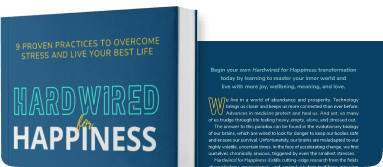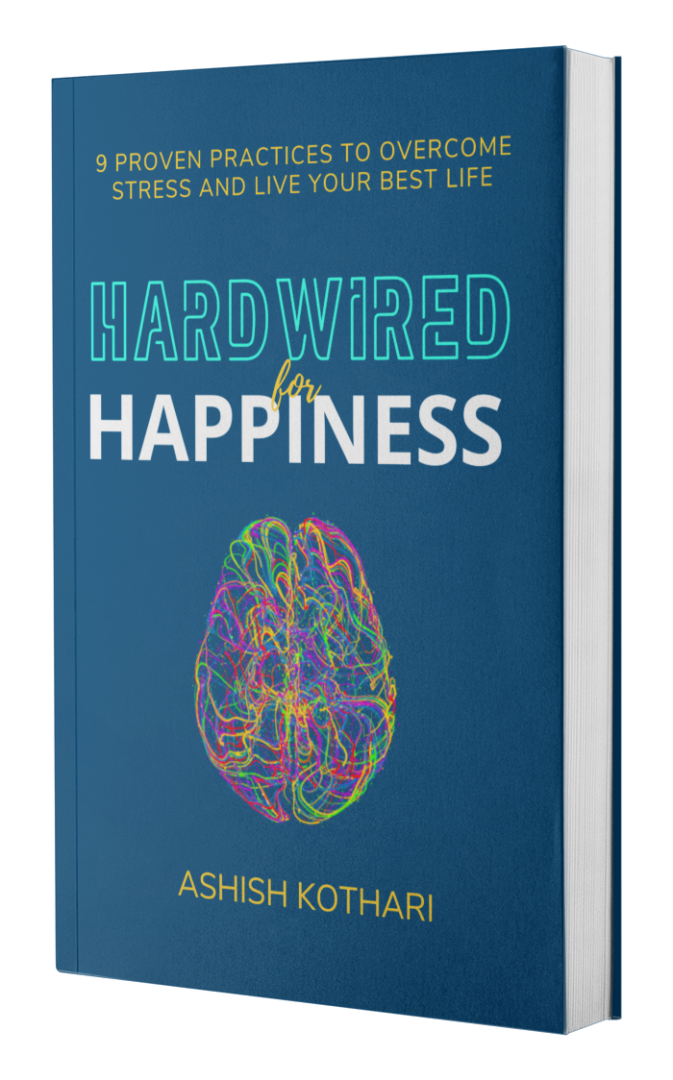The Illusion of Work-Life Balance: Why Life Is One Whole

“Work-life balance is an illusion. Life is one whole, let’s live it intentionally.” — Ashish Kothari
For decades, we’ve been told to strive for work-life balance, as if our careers sit on one side of a scale and our lives on the other, waiting for us to find the perfect equilibrium.
But what if that very framing is what’s keeping us from truly flourishing?
This question came alive for me in a recent conversation with my friend Ian Ziskin, former Chief Human Resources Officer at Northrop Grumman and founder of the EXec Group. Over his forty-year career, Ian has coached and mentored thousands of leaders, helping them grow people, purpose, and organizations.
What struck me most in our dialogue wasn’t just how Ian connects loss with leadership, but how he’s redefined what it means to flourish, not as balance, but as integration.
The Problem With “Balance”
We never talk about life-family balance or life-friends balance.
We don’t try to balance cooking dinner with taking the kids to baseball, or paying the bills with visiting a friend.
They’re all just… life.
So why do we draw a line between “work” and “life”?
Somewhere along the way, we started treating work as suffering and life as relief. Work became something we needed to “recover” from. That separation, reinforced by decades of corporate language and policy, has fractured the way we think about ourselves.
It’s time we heal that divide.
“Flourishing isn’t about balance, it’s about reconciliation.” — Ian Ziskin
Ian put it beautifully. Real flourishing, he said, is about bringing together what we love, what we’re good at, and who we care about into one intentional whole. It’s not about perfectly equal halves; it’s about reconciliation, an ongoing conversation between our values, our energy, and our choices.
Work to Live, Not Live to Work
During our conversation, Ian shared a perspective that resonated deeply with me. His son lives in Sweden, and over the last few years, Ian has spent significant time there.

“In Sweden,” he said, “people fundamentally work to live, not live to work. Their policies, culture, and laws reinforce that. Public policy actually aligns with what society values, family connection, community, and rest.”
It’s a simple but profound insight: alignment matters.
In the U.S. and many Western cultures, we celebrate the idea of hustle. We glorify overwork and conflate busyness with worth. Our systems and policies reward output and efficiency but often overlook well-being, connection, and trust.
In contrast, the Swedish model demonstrates what happens when a society’s values and structures are in harmony. Long vacations aren’t a privilege; they’re a principle. Parental leave isn’t an exception; it’s an expectation. And taking time to be with family or nature isn’t seen as slacking off, it’s seen as part of being a whole human.
This alignment creates a container for flourishing. It invites people to see work as part of a full life, not an interruption of it.
Trust: The Hidden Driver of Flourishing
One of the most powerful moments in our discussion came when we talked about trust. We discussed trust as the single most under-measured driver of flourishing.
“Until we get our arms around fundamental trust between human beings,” Ian told me, “it’s tough to get to the place of flourishing that we’re all striving for.”
Think about that in the context of the post-pandemic workplace. The debate around hybrid and remote work isn’t really about productivity, it’s about trust.
Do leaders trust their people to do great work when they’re not being watched?
Do employees trust their leaders to respect their autonomy and value their contribution?
Where trust is absent, micromanagement, disengagement, and burnout thrive.
Where trust is strong, people rise higher than anyone expects — because they feel seen, respected, and empowered.
Trust isn’t about pleasing people. It’s about integrity.
“By trust, I don’t mean doing what makes others happy,” Ian said. “It’s about doing what you say you’re going to do, and treating others with dignity and respect while doing it.”
Trust, in other words, is consistency with compassion. It’s reliability with heart.
When leaders embody that, they create the conditions for flourishing to spread.
Simplify the Way We Listen
As an HR veteran, Ian has watched organizations overcomplicate what should be simple: listening to people. He laughed as he described how engagement surveys have ballooned into 100-question marathons that take months to analyze and years to act upon.
Meanwhile, employees move on both emotionally and physically.

“Instead of measuring 100 things once a year,” Ian said, “measure 5 things frequently and act fast. Simplify dramatically, and increase accountability.”
That’s a principle we live by at Happiness Squad and within our REWIRE program. We encourage teams to build continuous listening loops, short, meaningful check-ins that drive action and ownership.
When people feel heard and see change, trust grows.
When trust grows, flourishing follows.
“If you ask people what they think, you have a 51% chance they’ll tell you the truth. If you don’t ask, you have 0%.” — Ian Ziskin
Sometimes, the path to human flourishing begins not with answers, but with the courage to ask better questions.
Three Reflections to Reclaim Wholeness
If the idea of work-life balance feels out of reach, maybe that’s because you were never meant to balance it. You were meant to integrate it.
Here are three questions to help you begin:
- What does a day of wholeness look like for me?
Design your ideal day not around tasks, but around energy. Where do you feel most alive? Who replenishes you? Build your calendar around that. - How can I integrate my work, relationships, and purpose so they feed one another?
Look for overlaps: projects that use your strengths to serve others, moments where mentoring, learning, or collaboration bring meaning beyond metrics. - Where can I bring more intentionality, not separation, into how I live and lead?
Choose small rituals that ground you. A mindful pause before meetings, gratitude before bed, a 10-minute walk between transitions. Integration is built one intentional act at a time.
The Shift From Balance to Wholeness
When we stop chasing balance and start cultivating wholeness, we begin to see that every part of life, the meetings, the meals, the moments of rest and heartbreak, are all threads in the same tapestry.
We can’t always control the patterns that emerge, but we can choose the care with which we weave.
So, the next time you feel stretched between “work” and “life,” pause and remember:
You are not two selves. You are one whole being, living one whole life.
Flourishing begins when you stop balancing and start integrating.
“Happiness doesn’t come from balancing life. It comes from embracing it, fully, consciously, and as one whole.” — Ashish Kothari
Learn more about Ian on Linkedin.
Listen to the podcast with Ashish and Ian below. You can also listen on Apple Podcasts.
Access and subscribe to all of the episodes of the Flourishing Edge Podcast here.
Make Flourishing Your Competitive Edge.


